I was provided a hosted trip via Vibe Israel to facilitate this post. All opinions are my own.
What to Eat in Israel
When I started this post I had this great idea, I would cover the top 10 things I ate during my mouth watering culinary trip to Israel with VibeIsrael.com.
Fortunately, for you, Israeli food can’t be consolidated into a simple list of 10 favorite items as each bite is soooo good.
Instead, I am going to simply share many of the wonderful bites and some of my favorite dishes. As well as a glimpse into the beautiful culinary history of Israel.
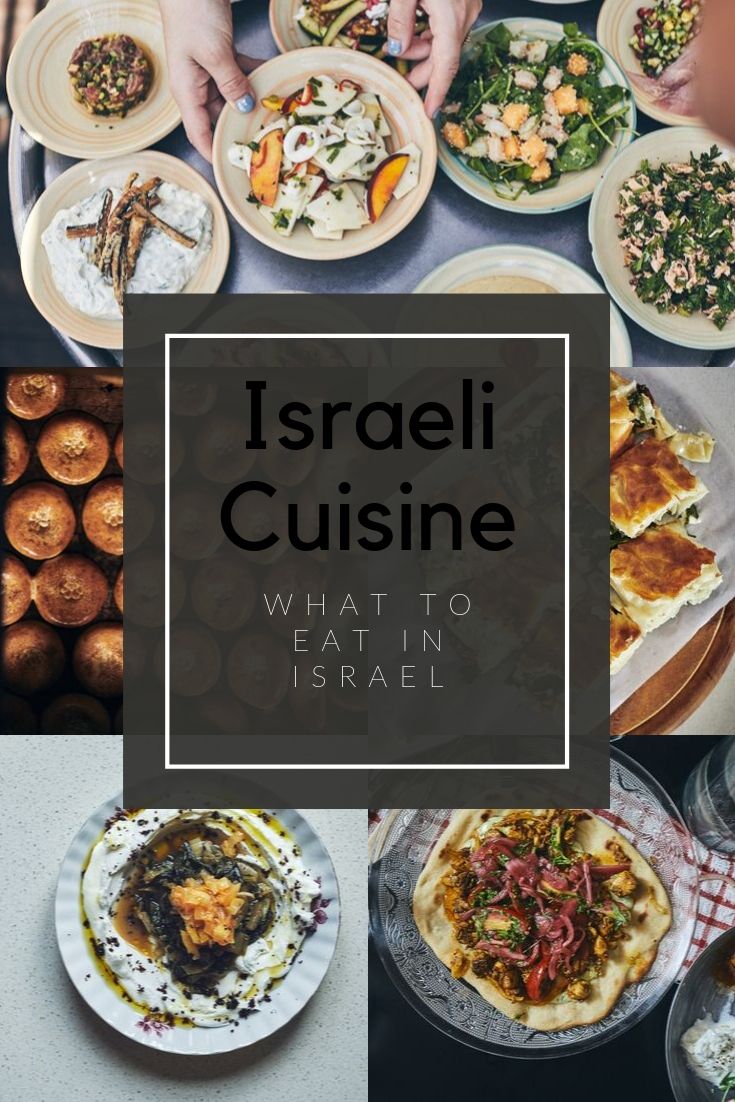
All photos taken by Amir Menahem
Whether you are heading to Israel, or just want to try some Israeli inspired food, now you can know what to try, what it is called, and where to find it in Tel Aviv and Jerusalem. (Check out my Visitor Guide to Jerusalem)
What kind of food do they eat in Israel?
One of the beautiful things about Israeli food is it can’t be put into a singular box. The cuisine has evolved and been created by the melting pot of cultures that make Israel. Check out the Israel Market Guide.
If I had to define it, I would say it is very Mediterranean and fresh, with recurring themes of olives, chick peas, vegetables, tahini, pita, filo dough, and fish.
But it has roots in many cultures and histories, which can be seen and experienced while walking through a single market place or dinging with a local family: Morocco, Libya, Tunisia, Algeria, Lebanon, Yemen, Iraq, Easter-European countries, Russia, and much of the Mediterranean.
The delicious cuisine in Israel is a reflection of the beautiful immigrants, and the diverse population of the country.
While as a whole, the Israeli food culture is young, since Israel only became a nation in 1948, the roots of the food go back thousands of years. And the tradition and love that is tied to that food goes back just as far.
Jewish immigration began at the end of the 19th century, but there have been waves of people from Arab countries, as well as European Holocaust survivors, and more, who have settled in Israel, and brought their food cultures with them.
Many of these settlers brought their culinary heritage with them. It was a way of preserving identity in a new place. But as is want to happen, these food cultures inter-mixed, swapping and sharing styles and cuisine, to create a whole new, but also comfortably familiar cuisine.
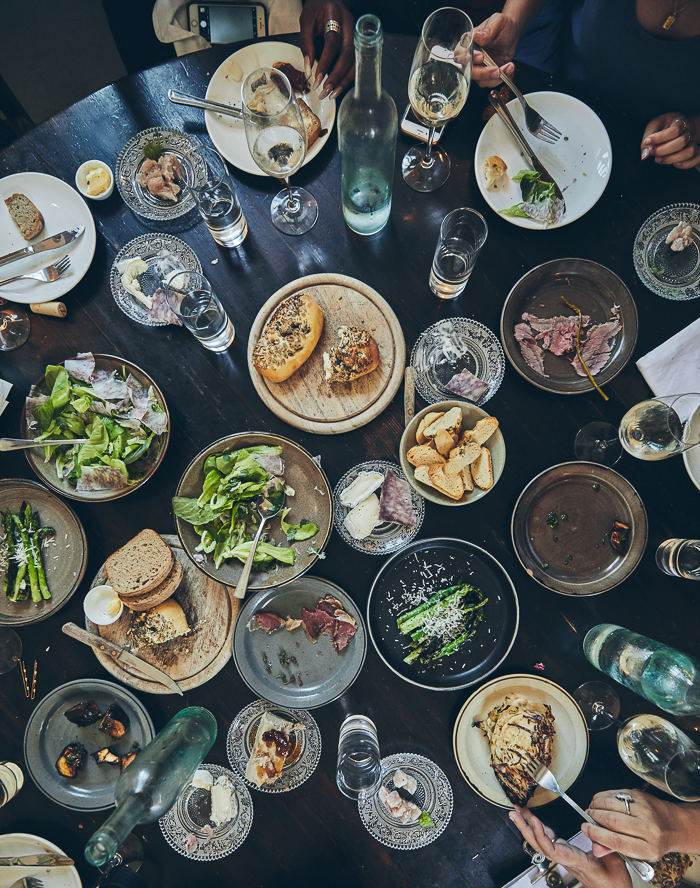
Let’s take a look at what it looks like today, and some of the best things to eat while visiting Israel.
Israel Favorite Bites
Hummus
Hummus, is a staple in Israel.
While in the US it is usually used as a condiment, in Israel, it is a main course. And there are many different flavors. From plain to beet root. It is usually more lemon-y than what you get in the states.
Hummus is usually served with pita bread, and often is served with other mezze, and extras: olives, hard boiled eggs, raw onion, pickles, and more.
There are a lot of delicious hummus in Israel, and if you were to ask an Israeli which is the best, you would get many different answers. Abu Hassan is often regarded as the best hummus spot in Tel Aviv.
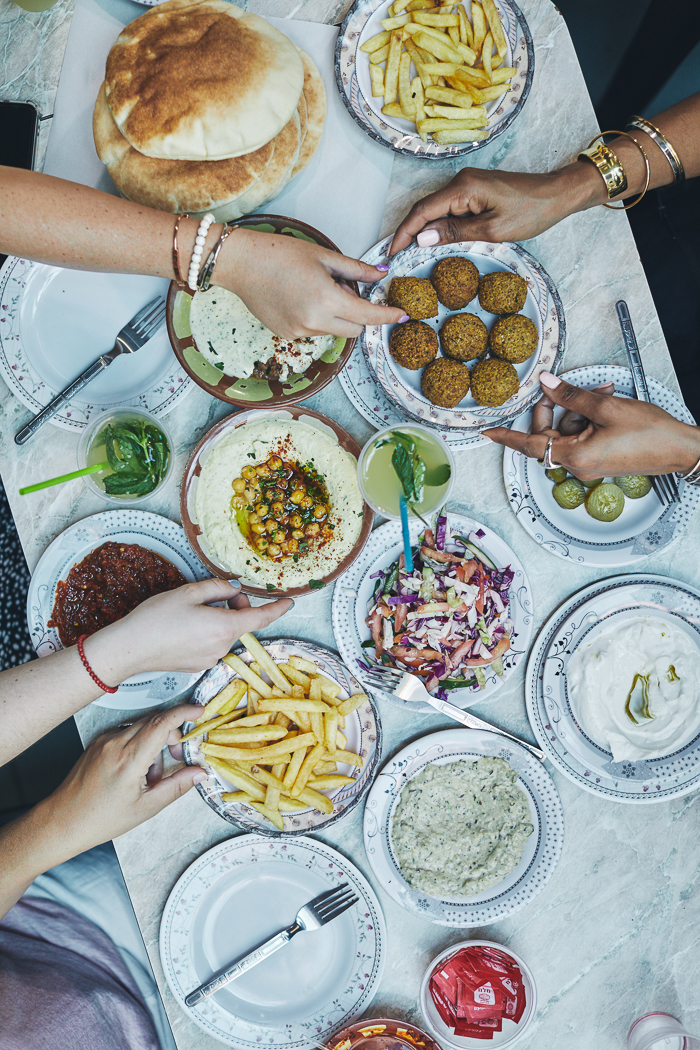
Pita/Focaccia/Bread
If you have the chance to eat a pita, focaccia, or really any bread at all in Israel, take it.
The breads are sooo good. They are flavorful, tender, and the perfect vehicle for sopping up hummus, tahini, cheeses, oils, and more.
My favorite came from Tali Friedman’s restaurant in Jerusalem’s The Atelier.
Falafel
Falafel is deep-fried chickpea balls, served in a pita, or as a side for hummus.
This is one of the most popular street foods and fast foods in Israel.
It is very good with Tahini. Or Israeli Salad. You can find these all over!
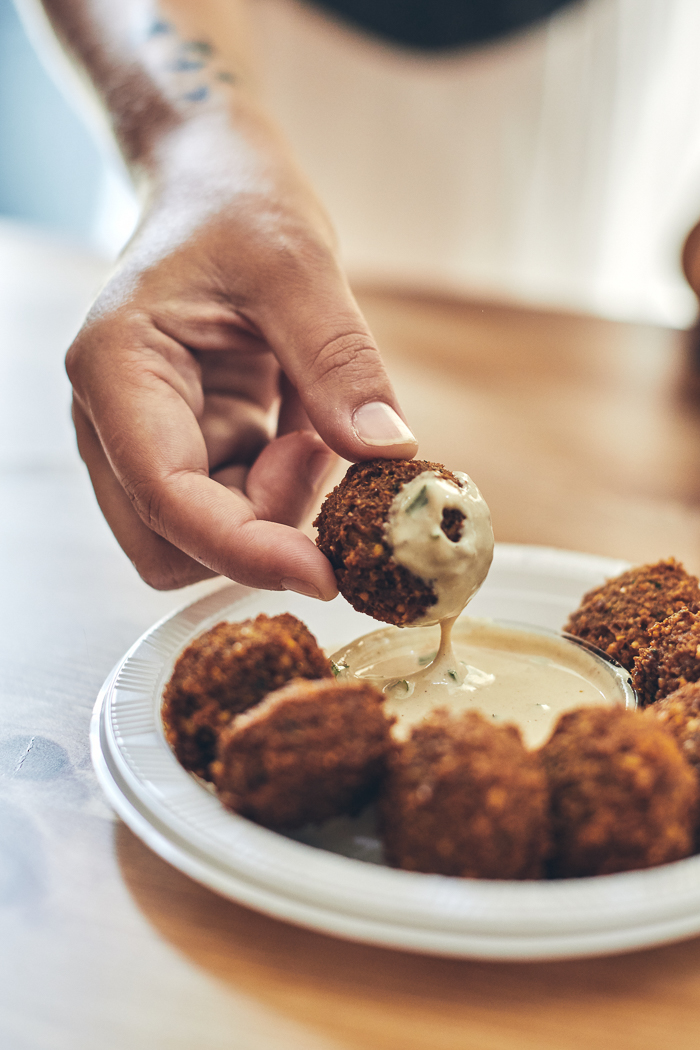
Tahini
Tahini is a delicious sauce made from sesame seeds. Sesame seeds are soaked in water, crushed, separated from the bran, then toasted, and ground to produce an oily paste.
During my #VibeFood trip, we learned the best Tahini is ground between stones that help to keep the temperature regulated to get the perfect grind for the paste, which results in a paste that does not separate, or need added oil.
We also learned Tahini can be flavored. And boy oh boy is it delicious. My favorite: Nugget Flavored from Kingdom of Tahini in the Mahane Yehuda Market (although it can be found all over Israel).
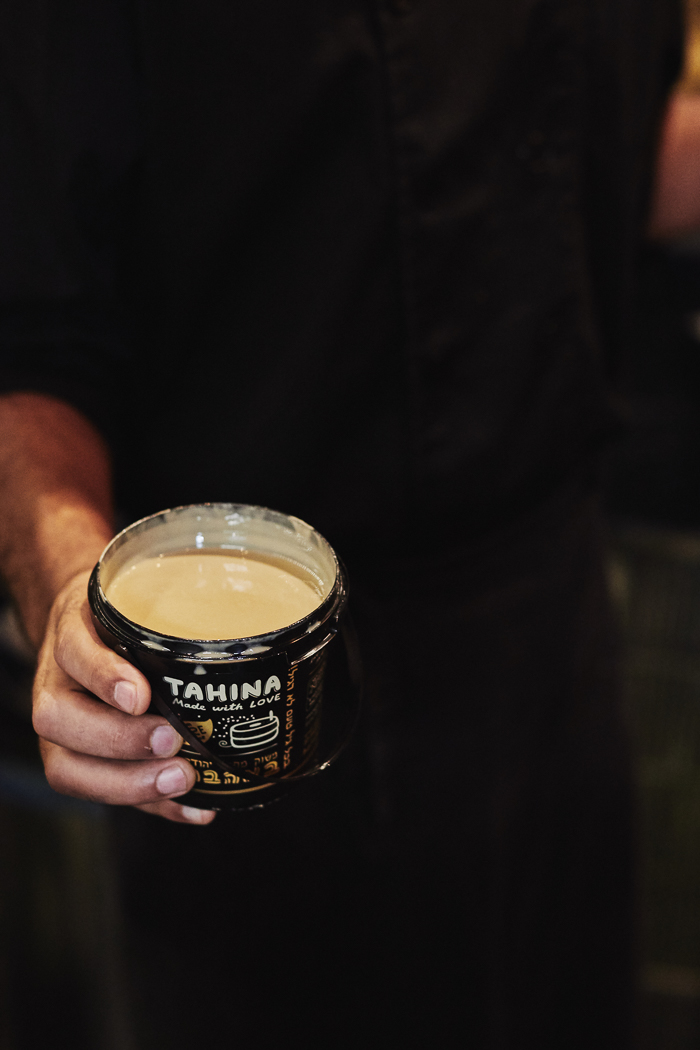
Sabich
Most people think shwarma and falafel when it comes to Israeli street food, but Sabich is my personal favorite.
Sabich is a delicious pita stuffed with fried eggplant, hard boiled eggs, hummus, tahini sauce, amba (a pickled mango sauce) Israeli salad and pickles.
Sabich was brought to Israel by Iraqi-Jewish immigrants in the 1940s and ’50s
Sabich Tchernichovsky is reportedly the best sabich in Tel Aviv.
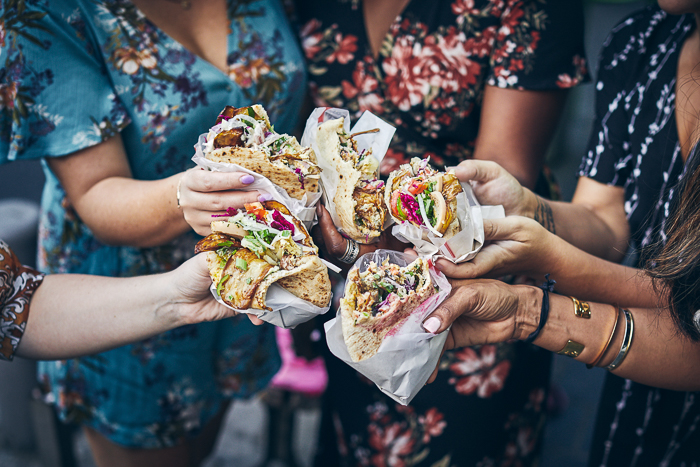
Ceviche
The best ever ceviche can be found in Israel. Seriously. I have had ceviche everywhere, but the ceviche I had in Israel was the greatest ever. So fresh. So flavorful.
Usually it is served with limes, often mango or other fruit, herbs, salt, and pepper.
My favorite ceviche:
- Menza in Jerusalem
- Ceviche in Vadi Nisnas with InMyKitchen.co.il
- Ceviche at Tali Friedman’s Atelier
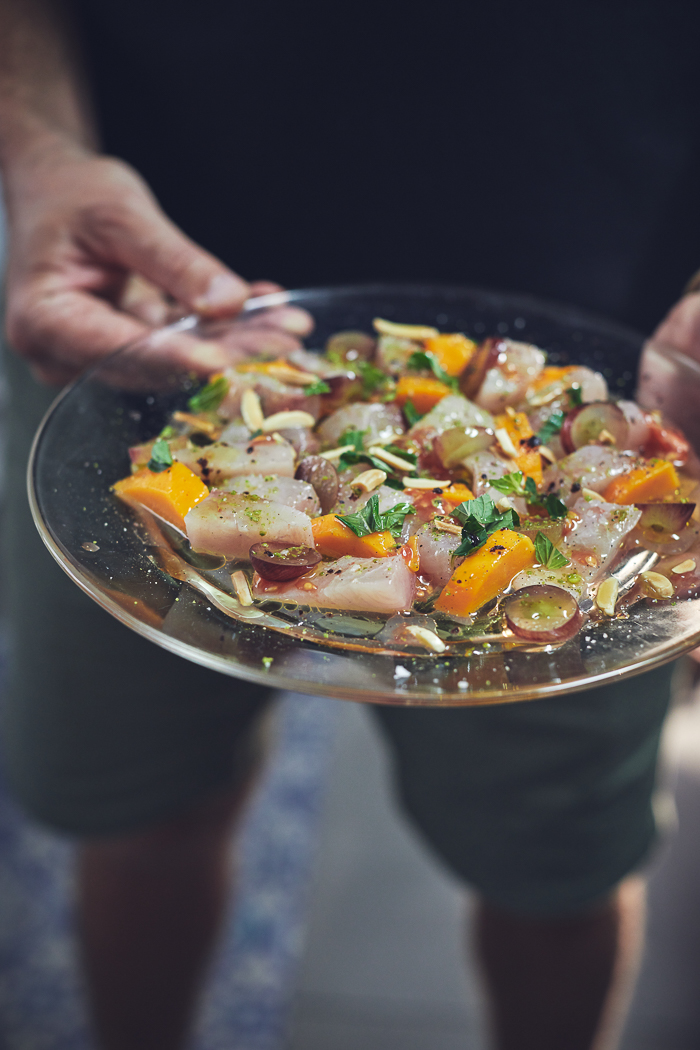
Burekas
Burekas, also referred to as borek, are a delicious pastry. But don’t think of the American sweet pastry.
The Burekas originates from Turkey, and are savory stuffed pastries often filled with cheese, spinach, mushrooms, potatoes, meat, eggplant, and more.
Burekas are one of Israel’s most popular snacks, and can be found in many variations. They can be found in bakeries, street food, coffee shops, and are even made at home.
We had a lovely night eating a Friday night dinner with a sweet family, set up through Betzavta.me, and the teenage daughter of our host family passionately shared her love of Burekas with us.
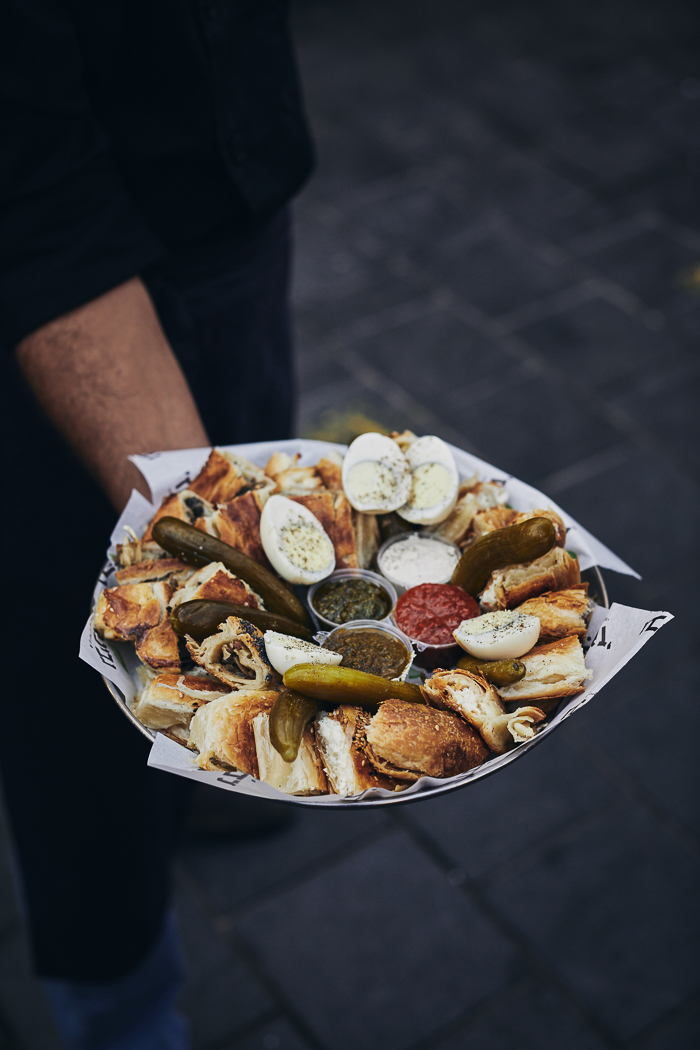
Seafood Challah
Ok, if I am being honest, I did not see this all over Israel, but we did have the most amazing seafood challah on our first night in Israel at Menza restaurant in Jerusalem. And it was to die for delicious.
Basically it is a partial loaf of challah bread, that is stuffed with fresh seafood in a creamy sauce.
Seafood is hugely popular in Israel, and it is so fresh and delicious. Combined with the sweet challah bread, and I was done for!
Halva
Halva is a dessert made from sesame. It is like the marshmallow version of Tahini. It can kind of stick to your teeth. It comes in lots of different flavors. And it is sooooo good.
You can find it in markets all over Israel, as well as shops.
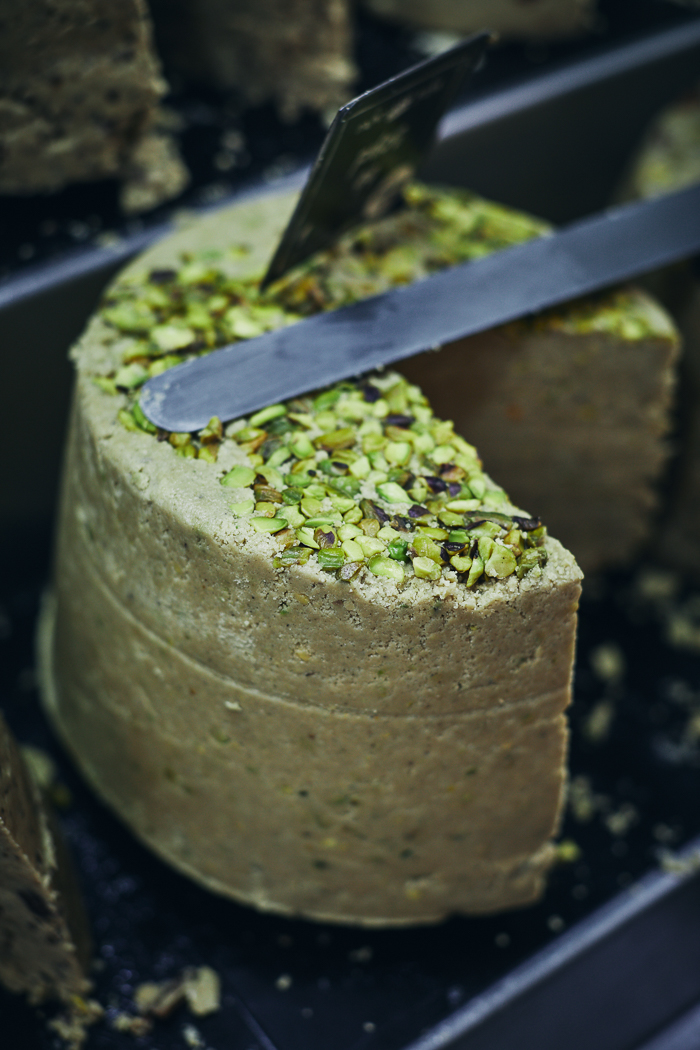
Za’atar
Za’atar as a spice blend made up of dried thyme, oregano, marjoram, toasted sesame seeds, and salt. It often contains sumac, and is soooo stinking good.
It can be hard to find a good za’atar where I live, and so I gobbled it up in Israel. One night we got pizza while at Teder.FM in Tel Aviv, and it came with pesto and za’atar to dip your pizza in. AMAZING. I don’t ever want to eat pizza any other way again.
Su Börek
Su Börek is one of my favorite bites from my enter trip to Israel. It is of Turkish origin. It is made from a phyllo dough that instead of baking or frying, it is cooked like lasagna noodles in water. And it is usually stuffed with something delicious like cheese and spinach.
This is when a Burekas (think laminated savory pastry dough) meets lasagna and has a beautiful baby.
We got to try this while on a tour with Bhuka tours in Tel Aviv’s Hatikva market area, at a place called Delik’s. And I have been craving it since.
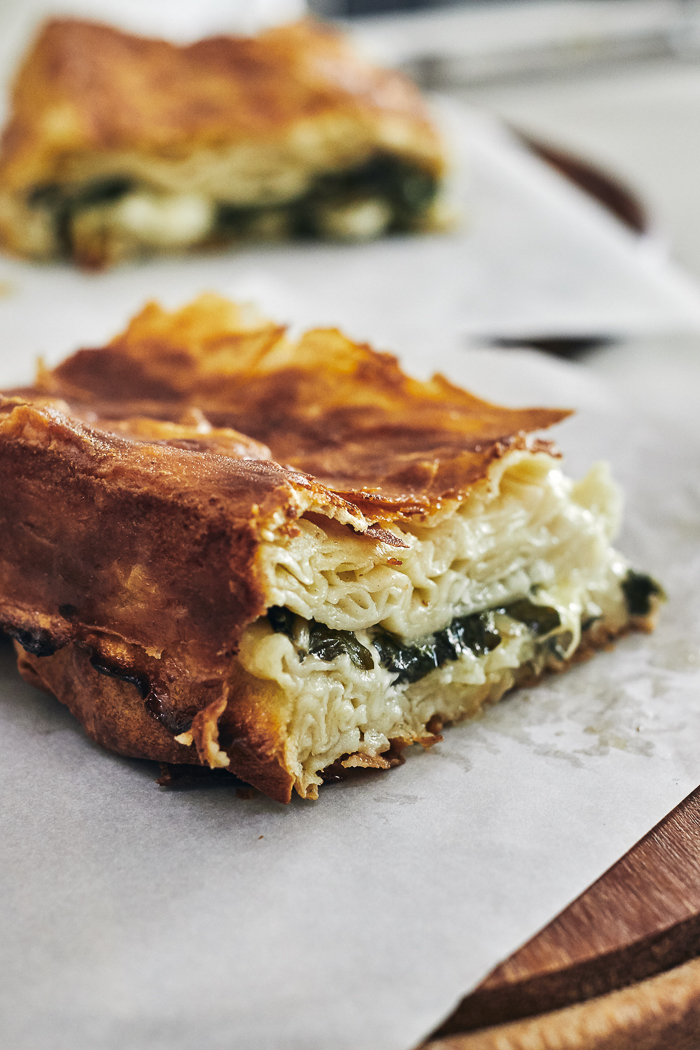
Babka
While Babka is traditionally of Polish origin, it is widely found in Israel, and is so incredibly delicious. Who doesn’t love carbs and chocolate?
Try the Babka from Lehamim Bakery, it is to. die. for.
Kazan Dibi
This is another swoon worthy food try in Israel, it is a milk pudding, often called “burned bottom” milk pudding because it has a caramelized top or bottom. It is sweet, and creamy, and can be eaten with a fork. It is often served with crushed nuts.
Think creme brûlée like flavor, but stiffer texture and oh so delicious.
My favorite came from Delik’s in Tel Aviv.
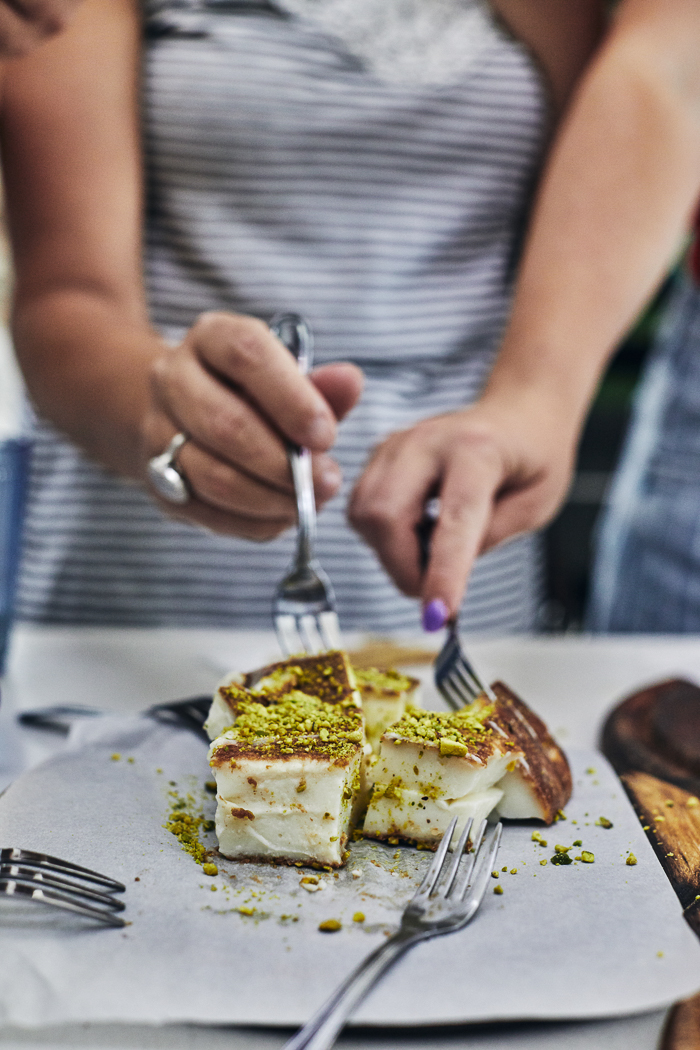
Jachnun
Jachnun is a Jewish dish originating from Yemen.
During one of our food tours, with Bhuka tours, we got to try foods that are traditional, and that originate from various parts of the world.
Jachnun is traditionally eaten on Shabbat mornings, and is prepared the day before and bakes overnight.
It is made from a thin dough that is rolled and folded into logs.
It is a dark brown colored pastry, slightly sweet in taste, but served as a savory dish.
You are meant to load it up with tomato dip, boiled eggs, and skhug (hot sauce).
A must-try Yemen pastry that is quintessential to your Israeli culinary experience.
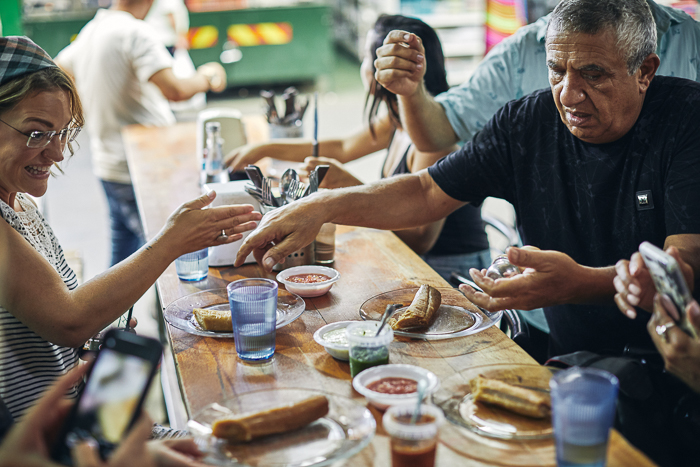
Lahooh or Lahoh
Lahooh is a spongy, pancake like flat bread that reminds me of Ethiopian flatbread Injera. It is Yemenite in origin and can be eaten sweet or savory.
Get it in the Hatikva market!
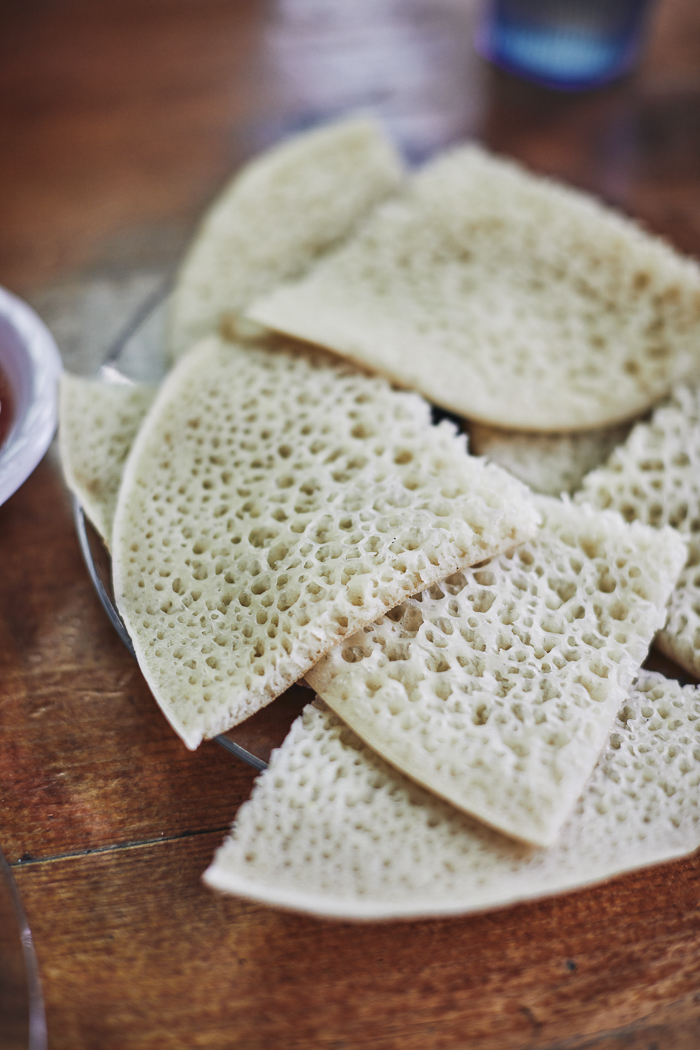
Kubane or Kubaneh
This is another Yemenite delight. It is a pull apart yeast bread. It is cooked on a low heat in a tightly covered container and is often served as part of Shabbat breakfast.
Slightly sweet, totally delicious.
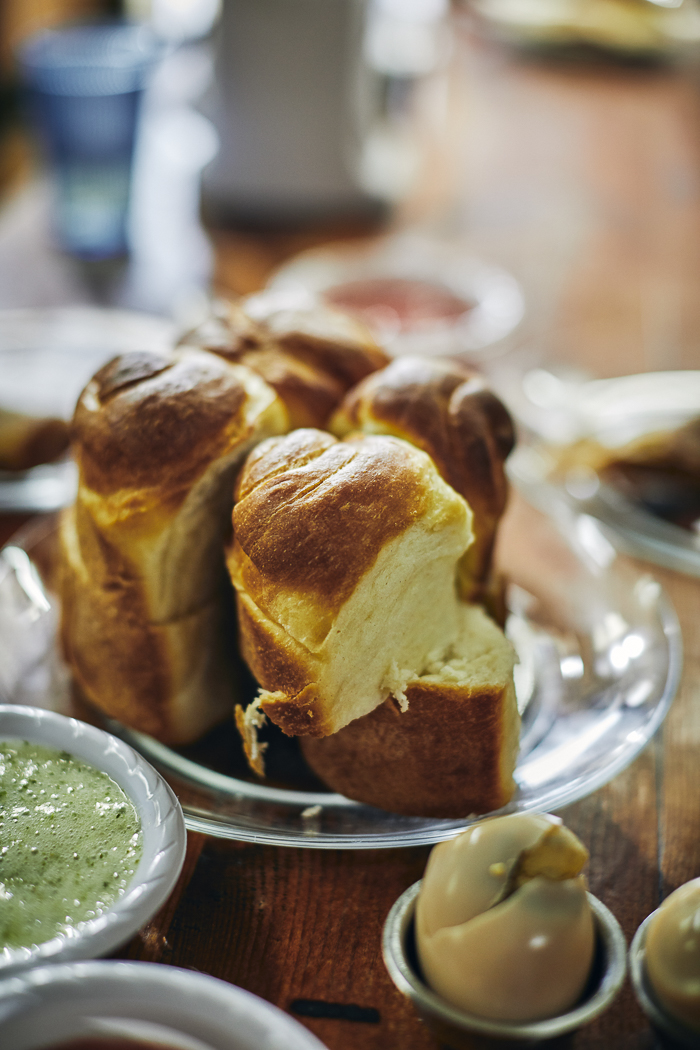
Jibneh (Iraqi Cheese)
Another of my favorite food items from Israel is the Jibneh, which is a chewy, salty, white cheese found all over the Middle East. It is similar to feta, but not as salty.
It is often stuffed into burekas, or served with olives and stuffed grape leaves. All in all, a delicious bite.
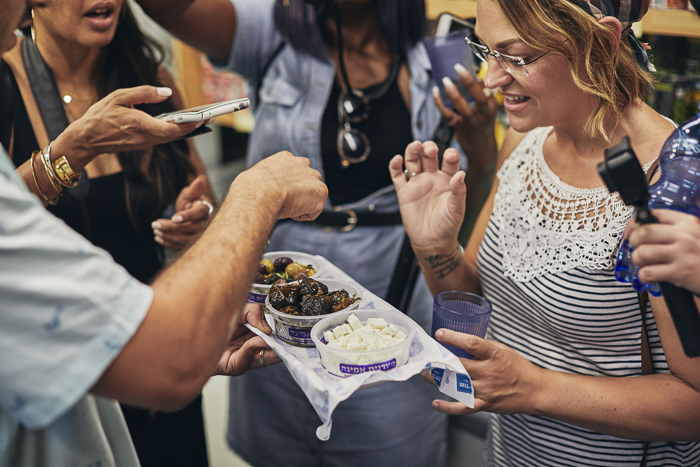
Kubeh
Kubeh was brought to Israel by Iraqi and Kurdish Jewish immigrants.
Kubeh is meant to be a soup with bulgur, minced onions and ground red meat, but it can also be served inside a yellow dough.
Jerusalem’s Machane Yehuda market, or Tel Aviv’s Hatikva Market are great places to find this Iraqi food.
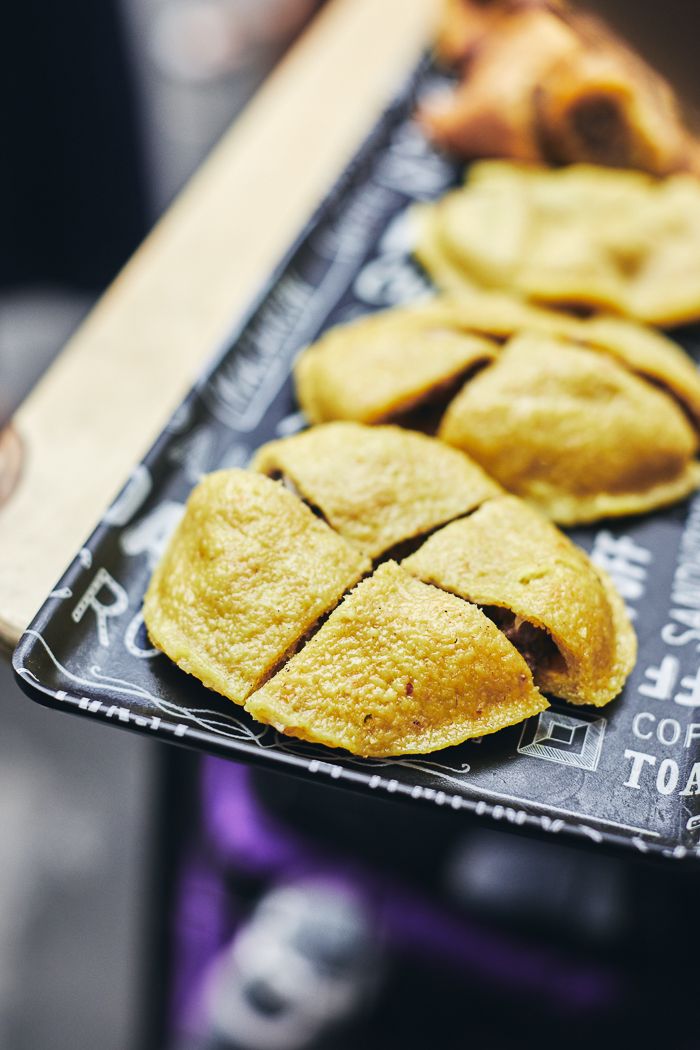
Malabi
This is a creamy, milk based pudding that is often flavored with rose water, and served with fruit. It is delicious.
According to our guide the best Malabi in Tel Aviv can be found just outside Hatikva Market at a family run establishment.
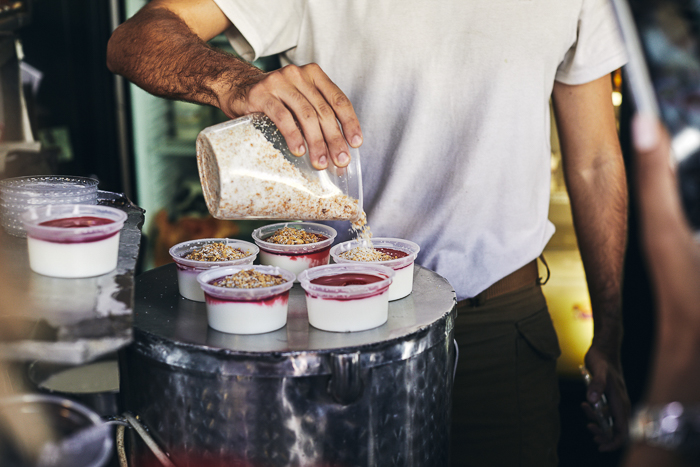
Kanafeh
This is a delicious Palestinian dessert. It is a sweet cheesy pastry that has an almost noodle like top, often made with phyllo and soaked in a sweet syrup, and topped with chopped pistachios.
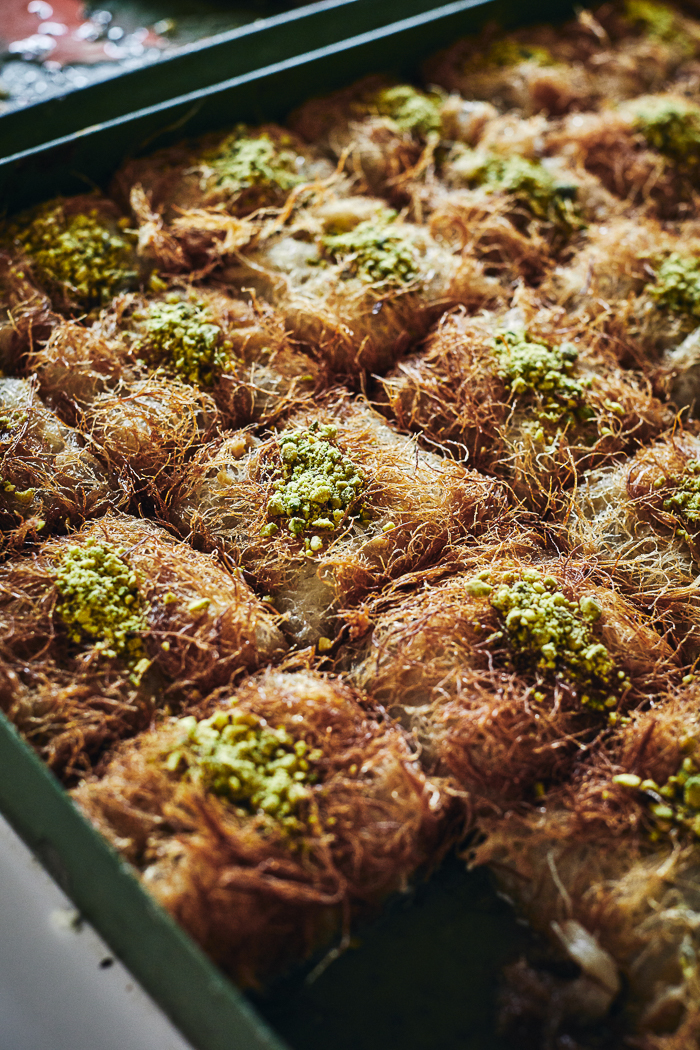
Pomegranate Juice
Fresh pomegranate juice can be found all over both Jerusalem and Tel Aviv. Most places will press the juice out right in front of you. It is sweet, a little bitter, and oh so delicious.
And it is loaded with anti-oxidants, so it is good for making you look young too!
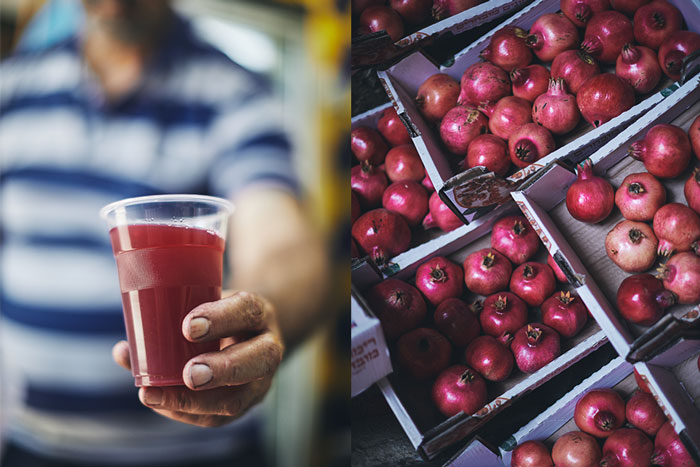
Arak Shots or Ouzo
Arak is an unsweetened distilled spirit that is flavored with anise. And everyone in Israel serves it. It is the digestive- shot of choice.
If you don’t like anise (black licorice flavoring), and want an after dinner shot, another option is Tequila.

Yosef, the owner of the Yemen deli, sharing Ouzo with our group!
Challah
Challah is a rich, eggy bread that is baked for Shabbat, or the Jewish Sabbath. But it can be eaten any day of the week. It is fantastic bread that is sweet, delicious, and wonderful stuffed with tasty things, or served with butter etc.
We had challah that was homemade during our lovely meal with a local family, the Shtaif family, which was set up through Betzavta. We had it fresh baked at a Lehamim bakery, in a restaurant, and more. and it was all delicious.
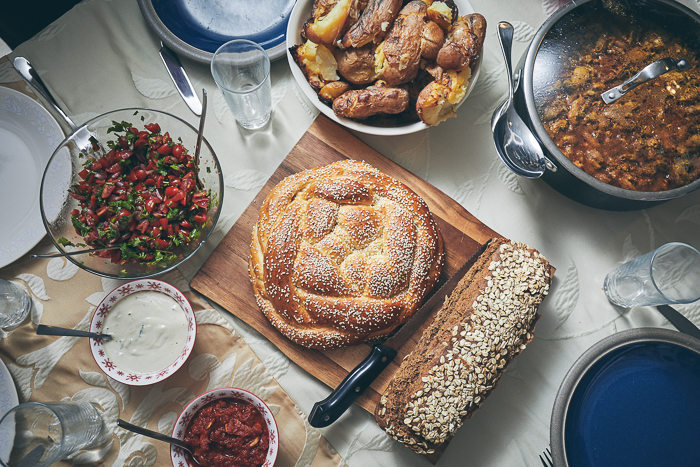
Preserved Lemons
Preserved lemons are a staple in Israel. We learned how to preserve them ourselves at Rutenberg Restaurant in Gesher, then again when we cooked with Avner Laskin.
If you get a chance to eat at Rutenberg Restaurant I highly recommend it. The food is fresh, nose to tail, and much of it is made in house, and that which isn’t is locally sourced. A truly amazing experience.
Back to preserved lemons, they are used as a spread, to enhance flavors, inside stuffed pastries, on top of dips, etc.
Delicious. Don’t skip the preserved lemon.
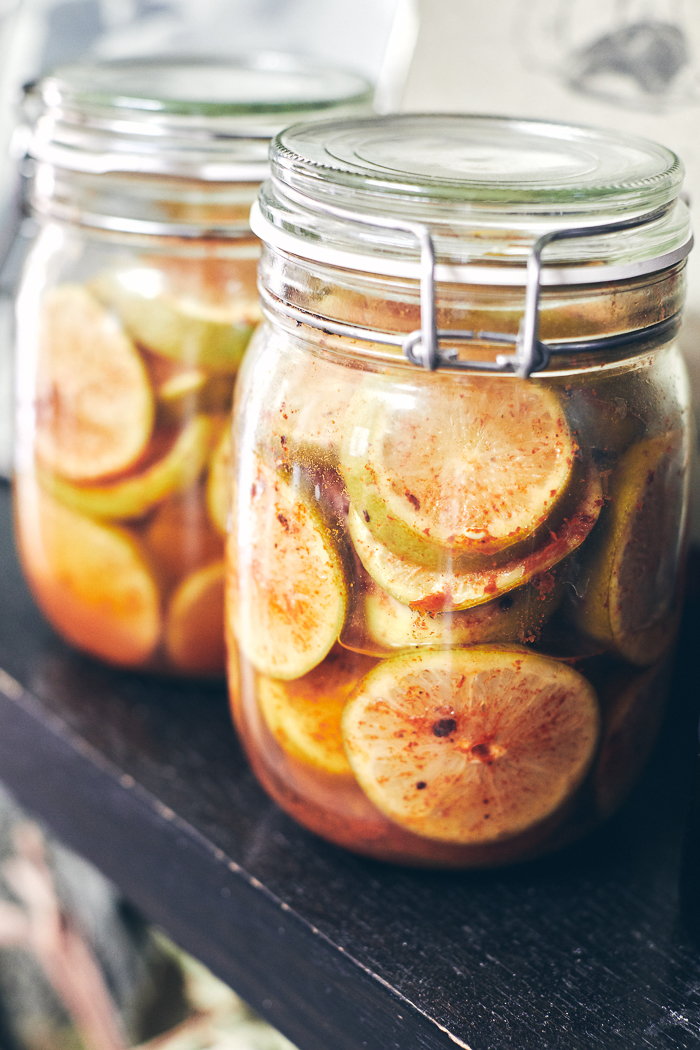
What is a typical breakfast in Israel?
A typical breakfast in Israel consists of a variety of fresh vegetable salads, cured meats, smoked salmon, labneh, breads, and more vegetables.
No one ever leaves the table hungry after a proper Israeli breakfast.
Israeli breakfasts are healthy, filling and delicious, and usually offer a wide variety.
Everywhere we ate had salads, fresh fruits, vegetables, labneh, and some form of breakfast casserole like shakshuka or other egg dishes.
We stayed in the Bezalel Hotel in Jerusalem and had a huge spread for breakfast each morning, and the big variety, and fantastic options simply continued throughout the trip.
What is a typical lunch in Israel?
In Israel, typical lunches and dinners consist of meze.
In other words, small plate meals with lots of options. Usually they are very vegetable heavy, and may contain fish. Hummus, Israeli Salad, and all the things you find on a breakfast menu can also be found on a lunch menu.
One of my favorite spreads of Meze that had calamari, salads, veggies, labneh, hummus, and more was from Manta Ray in Tel Aviv. Amazing views of the beach and great food. A must eat spot.
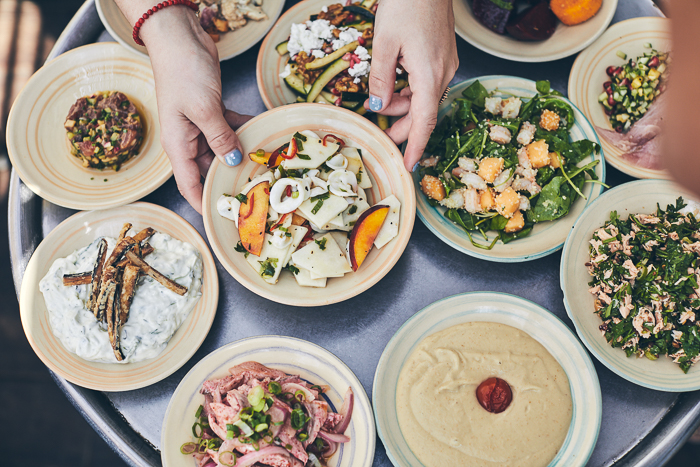
What are the best things to buy in Israel?
If you are visiting Israel, and want to buy food stuffs to bring home with you, I recommend:
- Summac- This delicious spice can be added to just about anything and can be found fresh in markets all over Israel.
- Zatar or Za’atar- I suggest getting it from Ziad’s Place in Vadi NisNas in Haifa.
- Tahini- I suggest you get it from Kingdom of Tahini in the markets.
While you can find all of these things in the US, none are as good as what you get straight from Israel.
Other Vacations:
- 3 Epic Disney Adventures to Dream About Right Now
- Maui Family Vacation: Why We Went to Maui For Christmas and 10 Things to do There
- Best Products for a Great Beach Vacation
- Tips for Travel with Kids
- Messenger Kids – Technology For Kids While Traveling

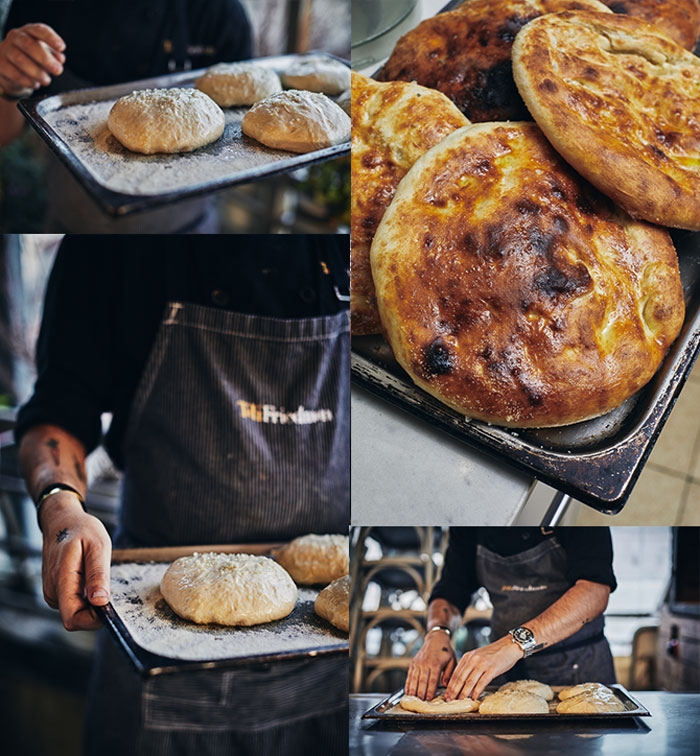
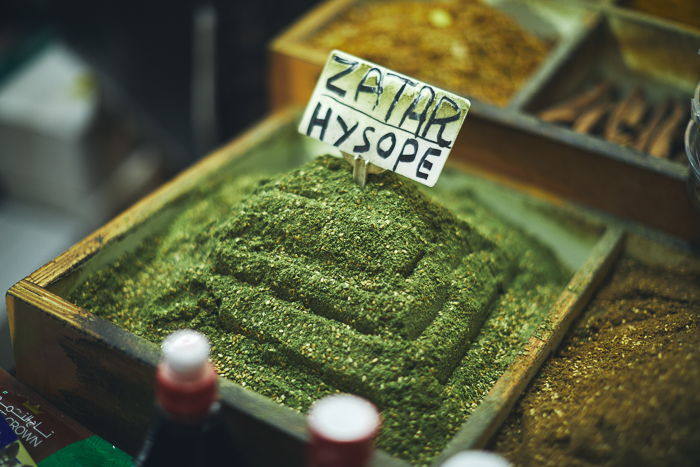
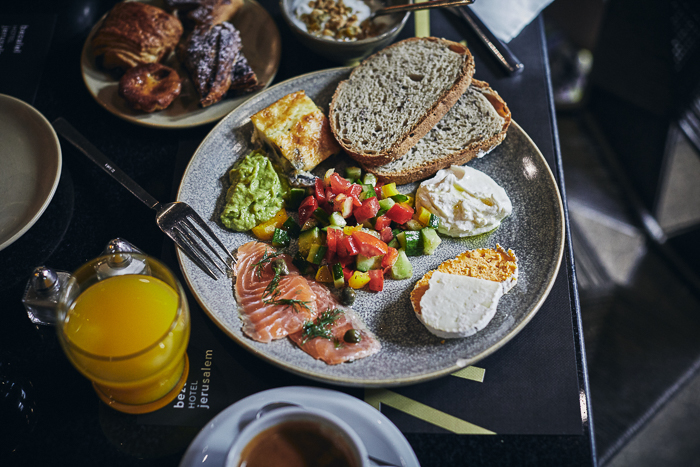

Diala says
Rachael this is such a great okay !!
Rachael says
Thank you so much Diala!
Georgia Palmer says
So fun to see these amazing pictures and learn about a place and the food that is eaten there. It brought back many memories of my trip there 10 years ago. I think I need to go back- I missed trying some great looking foods
Rachael says
When you go back I want to go with you! I could eat that food every single day.